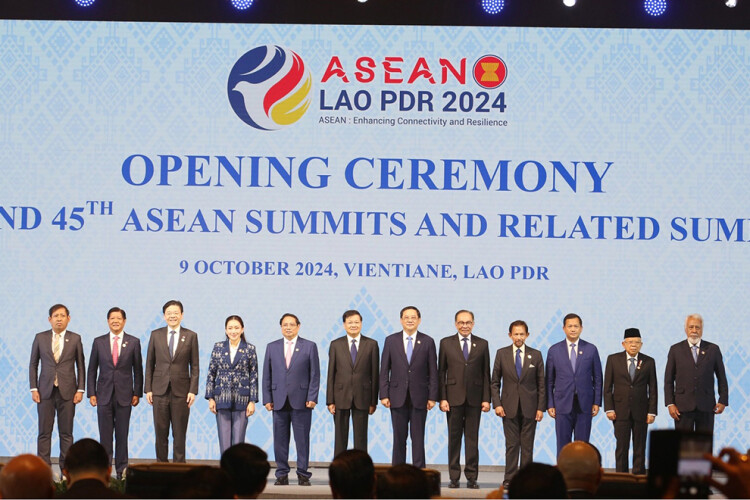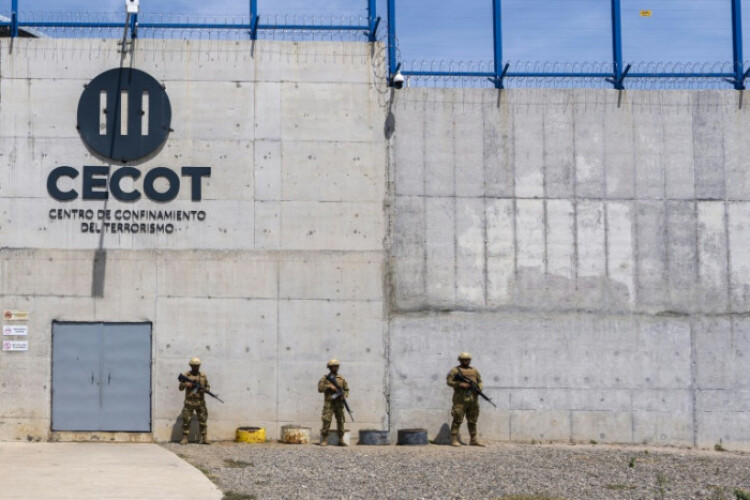
US Secretary of State Antony Blinken on Friday called out China’s “increasingly dangerous and unlawful” actions over the South China Sea during a summit of 12th Association of Southeast Asian Nations (Asean)-US summit held here.
Blinken said the United States “remains concerned about China’s increasingly dangerous and unlawful actions in the South and East China Seas, which have injured people, harmed vessels from Asean nations and contradicted commitments to peaceful resolution of disputes.”
“The United States will continue to support freedom of navigation and freedom of overflight in the Indo-Pacific. We also believe it’s important to maintain our shared commitment to protect stability across the Taiwan Strait,” he said in his opening speech.
Blinken said the United States also hoped to help address regional challenges, including the deepening crisis in Myanmar, North Korea’s “destabilizing behavior” in the Korean Peninsula, as well as Russia’s war in Ukraine.
“But whether it’s responding to urgent global challenges or advancing the shared hopes of our people, the relationship between the United States and Asean will continue to be essential. We look forward to this partnership growing even stronger in the years to come,” he said.
Call for unity
In the same summit, President Marcos also thanked the United States for being a “force of peace, stability and security” in the region, a day after he had called out China for its increasingly aggressive behavior over the West Philippine Sea, a portion of the South China Sea that the Philippines lays claim to.
“Please be assured of the Philippines’ continued support for projects advancing our common interest in the collective peace, stability and prosperity of our region,” Mr. Marcos said in his intervention.
Both the Philippines and the United States have been consistent in condemning China for its aggressive tactics in the South China Sea, over which it has sweeping claims. China, meanwhile, argues that the United States was meddling in the region’s affairs and using the Philippines as a foothold to assert dominance.
Both Mr. Marcos and Blinken’s statements also come amid continuing aggression and harassment from the China Coast Guard against Asean members Philippines and Vietnam.
In the Philippines’ case, in at least separate occasions in the past month alone, the China Coast Guard blasted horns, used water cannons and rammed maritime vessels of the Philippine Coast Guard. Civilian fisheries vessels and aircraft were targeted by lasers and subjected to intimidation by the People’s Liberation Army missile ships of China.
Strengthening Asean
Mr. Marcos first raised China’s conduct in the 45th retreat summit on Thursday, where he challenged the 10-member bloc “not to turn a blind eye” to China’s continued aggressions in the West Philippine Sea and warned that “silence in the face of violations” diminishes the Asean.
Sought for confirmation on Thursday, however, Mr. Marcos said it was “improper for him to disclose anything in the closed-door meeting … We leave it to the chairmen to decide what should be publicized or not.”
Based on a copy of his speech obtained by Philippine media, Mr. Marcos appealed to the bloc to “not ignore the actions of those which seek to divide us and use Asean for their own ends.”
He did not name China, but he added that the bloc “should firmly reject the actions of external parties, which violate international law, disregard international norms, and distort and undermine the principles upon which this organization is founded.”
Asia News Network/Philippine Daily Inquirer
Blinken said the United States “remains concerned about China’s increasingly dangerous and unlawful actions in the South and East China Seas, which have injured people, harmed vessels from Asean nations and contradicted commitments to peaceful resolution of disputes.”
“The United States will continue to support freedom of navigation and freedom of overflight in the Indo-Pacific. We also believe it’s important to maintain our shared commitment to protect stability across the Taiwan Strait,” he said in his opening speech.
Blinken said the United States also hoped to help address regional challenges, including the deepening crisis in Myanmar, North Korea’s “destabilizing behavior” in the Korean Peninsula, as well as Russia’s war in Ukraine.
“But whether it’s responding to urgent global challenges or advancing the shared hopes of our people, the relationship between the United States and Asean will continue to be essential. We look forward to this partnership growing even stronger in the years to come,” he said.
Call for unity
In the same summit, President Marcos also thanked the United States for being a “force of peace, stability and security” in the region, a day after he had called out China for its increasingly aggressive behavior over the West Philippine Sea, a portion of the South China Sea that the Philippines lays claim to.
“Please be assured of the Philippines’ continued support for projects advancing our common interest in the collective peace, stability and prosperity of our region,” Mr. Marcos said in his intervention.
Both the Philippines and the United States have been consistent in condemning China for its aggressive tactics in the South China Sea, over which it has sweeping claims. China, meanwhile, argues that the United States was meddling in the region’s affairs and using the Philippines as a foothold to assert dominance.
Both Mr. Marcos and Blinken’s statements also come amid continuing aggression and harassment from the China Coast Guard against Asean members Philippines and Vietnam.
In the Philippines’ case, in at least separate occasions in the past month alone, the China Coast Guard blasted horns, used water cannons and rammed maritime vessels of the Philippine Coast Guard. Civilian fisheries vessels and aircraft were targeted by lasers and subjected to intimidation by the People’s Liberation Army missile ships of China.
Strengthening Asean
Mr. Marcos first raised China’s conduct in the 45th retreat summit on Thursday, where he challenged the 10-member bloc “not to turn a blind eye” to China’s continued aggressions in the West Philippine Sea and warned that “silence in the face of violations” diminishes the Asean.
Sought for confirmation on Thursday, however, Mr. Marcos said it was “improper for him to disclose anything in the closed-door meeting … We leave it to the chairmen to decide what should be publicized or not.”
Based on a copy of his speech obtained by Philippine media, Mr. Marcos appealed to the bloc to “not ignore the actions of those which seek to divide us and use Asean for their own ends.”
He did not name China, but he added that the bloc “should firmly reject the actions of external parties, which violate international law, disregard international norms, and distort and undermine the principles upon which this organization is founded.”
Asia News Network/Philippine Daily Inquirer






